ELA026 demonstrated a high overall response rate (ORR) across a range of sHLH patients and a favorable safety profile in this life-threatening hyperinflammatory condition
In patients with the poorest prognosis, those with malignancy-associated HLH,
early treatment with ELA026 resulted in 100% ORR and improved survival
SOUTH SAN FRANCISCO, CA, June 16, 2024 – Electra Therapeutics, Inc., a clinical stage biotechnology company developing antibody therapies against novel targets for immunological diseases and cancer, announced the presentation of clinical data for ELA026 in secondary hemophagocytic lymphohistiocytosis (sHLH), a life-threatening hyperinflammatory condition. The results were presented today as one of six abstracts selected for oral presentation in a late-breaking session at the European Hematology Association (EHA) Congress in Madrid, Spain.
Results were reported for sHLH patients in the ongoing Phase 1b clinical study, which has enrolled a majority of patients with the deadliest sHLH subtype, malignancy-associated HLH (mHLH). In treatment naive mHLH patients, ELA026 achieved a 100% overall response rate (ORR) by week 4 and improved survival at two months compared to natural history studies. ELA026 also demonstrated a high response rate across a range of sHLH patients and a favorable safety profile in this patient population.
ELA026 is a first-in-class monoclonal antibody that targets signal regulatory protein (SIRP)-α/β1/γ on the cell surface of myeloid cells and T lymphocytes, the pathological immune cells that induce hyperinflammation in sHLH. The Phase 1b study is an ongoing open-label, multi-dose, single-arm, multicenter study designed to evaluate the safety and efficacy of ELA026, assess biomarkers, and identify a dose for Phase 2/3 testing (ClinicalTrials.gov identifier: NCT05416307).
“These data show very promising results for ELA026 as a potential treatment for sHLH, which is a challenging disease that is devastating for patients and has no approved treatment options,” said Swaminathan P. Iyer, MD, Professor in the Department of Lymphoma/Myeloma at The University of Texas MD Anderson Cancer Center. “Notably, the analysis reveals improved survival was achieved with ELA026 in treatment-naïve mHLH patients, suggesting benefit from early treatment intervention for patients with this rapidly progressing disease.”
Study Results Presented at EHA 2024 Congress
The oral presentation at EHA2024, entitled “ELA026 Targeting of SIRP(+) Immune Cells Results in a High Response Rate and Improved 2-Month Survival of Treatment-naïve Malignancy-associated Hemophagocytic Lymphohistiocytosis in a Phase 1 Study,” was presented by the lead author, Abhishek Maiti, MD, Assistant Professor in the Department of Leukemia at The University of Texas MD Anderson Cancer Center. The data describe analysis of sHLH patients in three cohorts of the ongoing Phase 1b clinical study, including the following highlights:
- A majority of enrolled patients had malignancy-associated HLH (mHLH) which has the poorest prognosis, with a mortality rate of approximately 50% at two months. 1
- ELA026 was observed to have a favorable safety profile, with manageable adverse events, in this patient population.
- In Cohorts 1 and 2, which have completed enrollment (n=12), ELA026 achieved an overall response rate (ORR) of 75% by week 4. Enrollment in Cohort 3 is ongoing (n=5 as of April 17, 2024).
- Across all cohorts, 8 patients had treatment-naïve mHLH; in this group, ELA026 achieved an ORR of 100% by week 4 and survival was 88% at two months.
- In the study, pharmacodynamic and biomarker responses correlated with clinical responses.
- The Phase 1b study has expanded to include up to 20 patients in Cohort 3 and will continue to evaluate ELA026 in frontline treatment settings in patients with various subtypes of sHLH.
“We are delighted that the results of the clinical study of ELA026 in sHLH were recognized and selected as a late-breaking presentation at EHA. This interim data is extremely encouraging, particularly with the high response rates and improved survival at two months achieved in treatment-naïve mHLH patients, and suggests ELA026’s promise as a first-line treatment. Survival at two months is a clinically meaningful benefit for this patient population and demonstrates the ability of ELA026 to rapidly extinguish the hyperinflammation in sHLH, enabling mHLH patients to pursue curative therapies for their underlying cancer,” said Kim‑Hien Dao, DO, PhD, Chief Medical Officer at Electra. “We look forward to continuing enrollment in this study and advancing the clinical program to further assess the safety and efficacy of ELA026 in sHLH patients who currently have no approved therapies.”
About Secondary Hemophagocytic Lymphohistiocytosis (sHLH)
Secondary hemophagocytic lymphohistiocytosis (sHLH) is a rare, life-threatening inflammatory disease for which there is no approved treatment. It can be triggered by cancer (malignancy-associated HLH, or mHLH), infection, autoimmune disease, or immunotherapy. sHLH is associated with a systemic inflammatory response for which patients require immediate intervention. Without treatment, patients may experience multiple organ failure and death. sHLH has a high mortality rate during the first months of diagnosis, with mHLH patients having the poorest outcomes.
About Electra Therapeutics
Electra Therapeutics is a clinical stage biotechnology company developing therapies against novel targets for immunological diseases and cancer. The company’s lead product candidate, ELA026, is a first-in-class monoclonal antibody that targets SIRP on the cell surface of myeloid cells and T lymphocytes, and precisely depletes pathological immune cells. ELA026 is in clinical development for secondary hemophagocytic lymphohistiocytosis (sHLH), a rare, life-threatening hyperinflammatory condition for which there is no approved treatment, as well as additional disease indications. For more information, please visit www.electra-therapeutics.com and follow us on LinkedIn.
Media Contact:
Kathryn Morris
The Yates Network
914-204-6412
kathryn@theyatesnetwork.com

